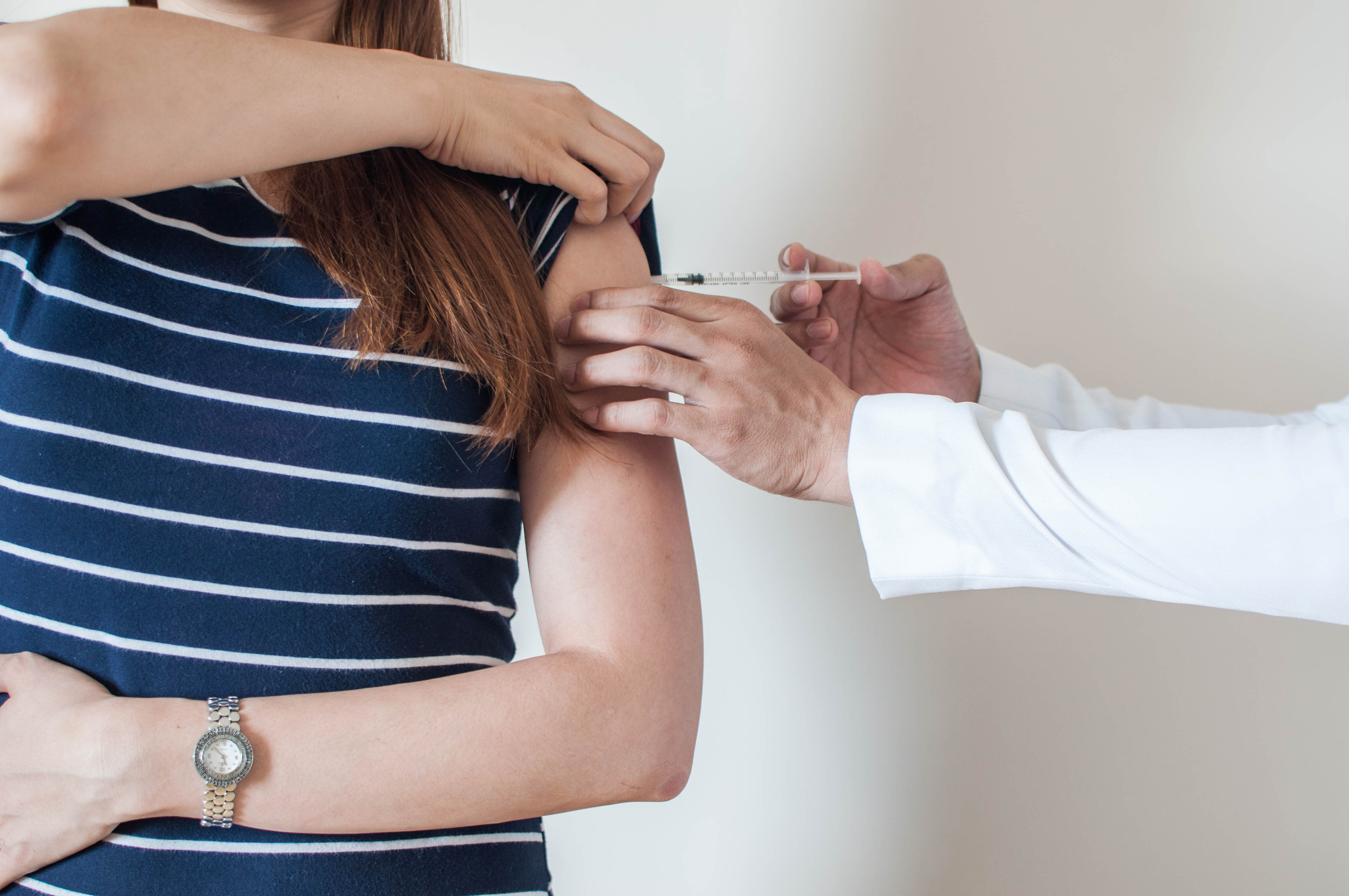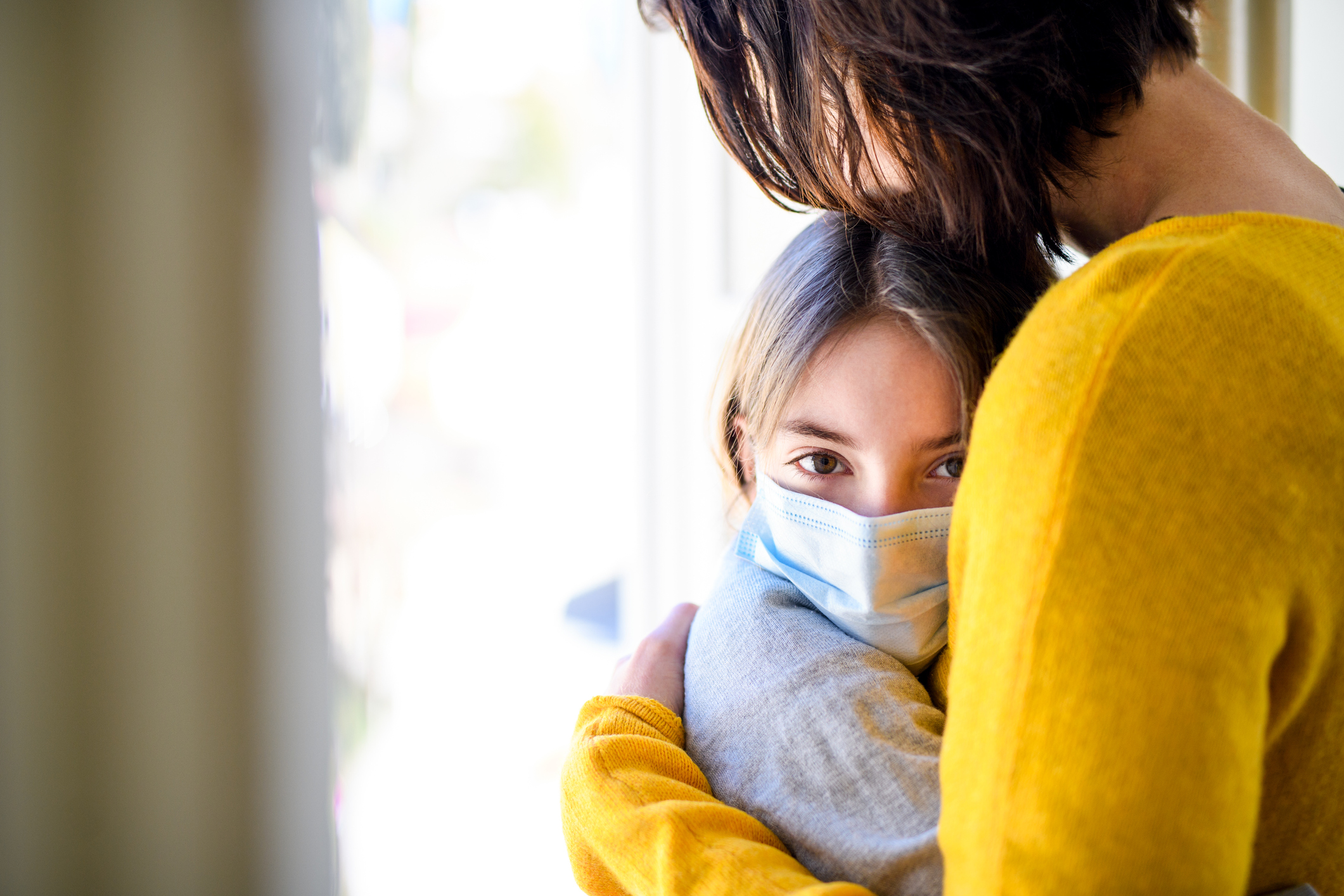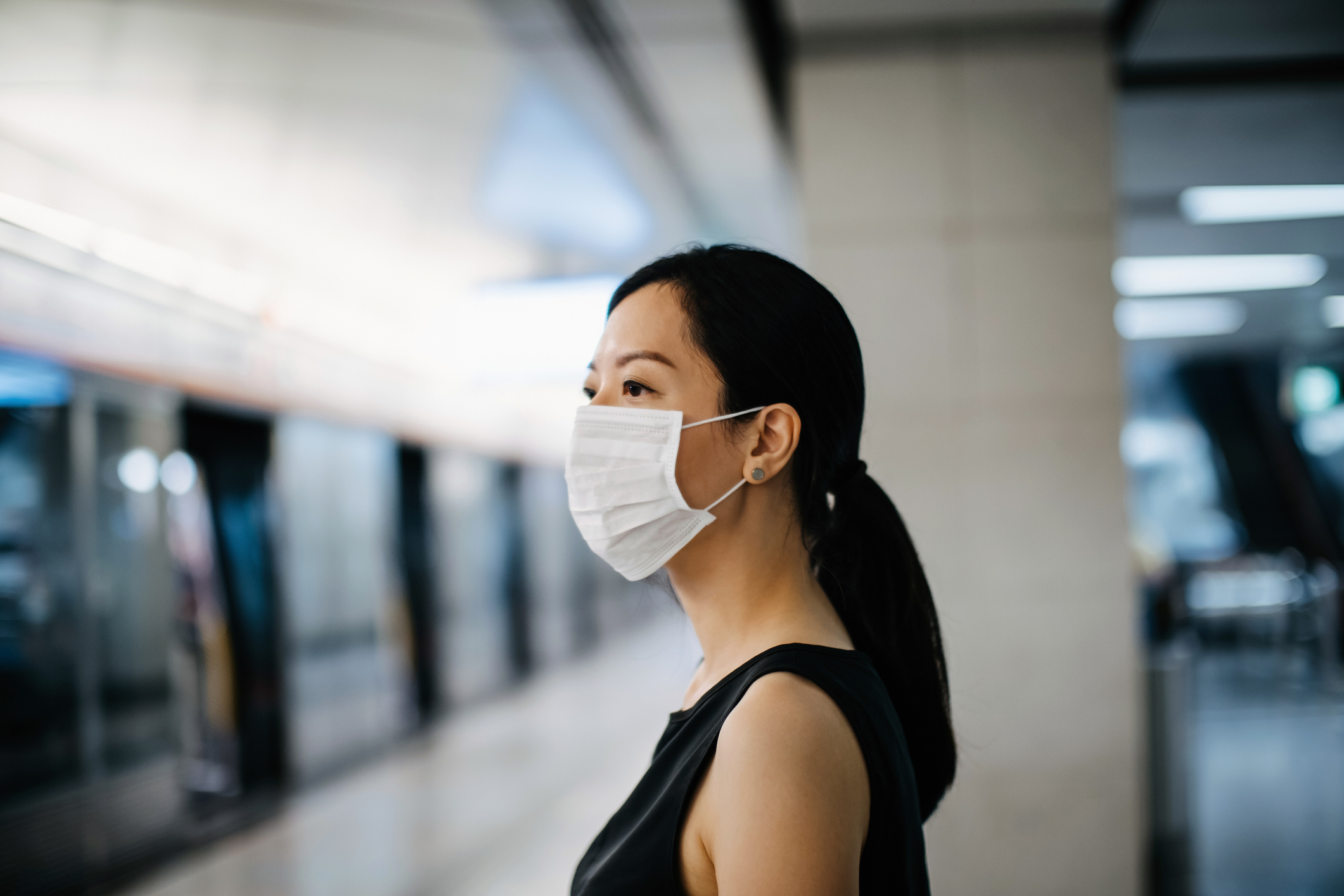
Celebrity news, beauty, fashion advice, and fascinating features, delivered straight to your inbox!
You are now subscribed
Your newsletter sign-up was successful
A University of Glasgow study suggests young people, women and people from Black, Pakistani and Bangladeshi communities are less likely to get the vaccine. But why?
Vaccine misinformation and rumours about the the so-called side effects of the Coronavirus vaccine are rife at current, with everything from supposed microchips, altered DNA states and even links between the Covid vaccine and fertility being thrown about.
Fake news seems to be spreading online about the vaccine faster than it was invented, with some going as far as to claim the vaccine is made from fetus tissue, according to BBC news. That's why we've spoken to Lydia Morrish, researcher and social media journalist at First Draft, an NGO non-profit organisation working to protect communities from misinformation.
She's spent the last year monitoring the narratives around vaccines, gender and health - and the vaccine misinformation that's currently spreading throughout both our society and communities. Here, she explores what she's seen, including a new shedding hoax spreading across social media, falsely claiming that vaccines cause infertility and more.
Do read up on the major long Covid symptoms and Coronavirus vaccine side effects, while you're here, and don't miss our guide to the truth about blood clots, the vaccine and different types of contraceptives, too.
Vaccine misinformation: Is the Covid-19 vaccine harming women more then men?
"As part of a dangerous hoax spreading online, anti-vaccine activists are baselessly claiming people who have had a Covid-19 vaccine can 'shed' parts of the shot to those nearby, causing reproductive health issues ranging from irregular periods to infertility."
"The claims have reached tens of thousands of people, but doctors say they're unfounded."
“There is no theoretical basis whatsoever why any of these vaccines might affect fertility in women or men - it's completely, scientifically, medically implausible that something could be ‘shed’ from one woman who’s had a vaccine to somebody else and affect periods or fertility, or so says Dr. Pat O’Brien, vice president at the Royal College of Obstetricians and Gynaecologists (RCOG)."
Celebrity news, beauty, fashion advice, and fascinating features, delivered straight to your inbox!
"While it might sound far-fetched, such vaccine misinformation can really affect uptake, particularly among women. Against a background of existing medical marginalisation, distrust in health institutions and gaps in information about women’s bodies, the rumour is all the more harmful."

Studies show women are less likely to get vaccinated
"While anyone could be wary of vaccines because of health fears or scary rumours, studies suggest women are less likely to take the Covid-19 vaccine than men."
"In the UK, intention to take the Covid-19 vaccine is high overall, but a University of Glasgow study suggested young people, women and people from Black, Pakistani and Bangladeshi communities were less likely to get the vaccine when offered. Women in the US are also less inclined, with 66% saying they would take the vaccine compared with 72% of men, according to the Pew Research Center."
"But why? Vaccination is usually a decision parents make for their children. Because of traditional childcare roles, women have historically been at the forefront of global anti-vaccine campaigns, with some viewing it as a 'mother’s question'."
"Despite recent progress levelling the childcare gender gap, parental duties have fallen disproportionately on women during the pandemic. Women’s work has also been more heavily affected than men’s, with women facing more redundancies amid lockdowns. All of this contributes to greater uncertainty, which can lead people to find vaccine misinformation or conspiracy theories more enticing."
"Experts on gender and public policy have also pointed out that the rise of 'natural parenting', where distrust of medical authorities and vaccines is routine, and long-standing medical racism contribute to women’s scepticism of Covid-19 vaccines."
Healthcare gaslighting doesn't help the matter
"Ongoing concerns about the lack of accessible health information and care for women are also partly to blame for the appeal of misinformation about the vaccine’s impact on women. Their marginalisation - particularly women of colour - by the medical establishment is well-documented."
"Doctors can downplay women’s reproductive and sexual health concerns in what’s come to be known as healthcare gaslighting."
"It’s no wonder, then, that some women might be cautious of the healthcare industry and the products it promotes."
"Without clear-cut advice, women are left to look online for guidance. In a sea of content, they often encounter untrustworthy information, including the shedding myth. Researchers have linked vaccine hesitancy to existing distrust in pharmaceutical companies and government institutions, so someone who already believes that health authorities don’t prioritise them might find affirmation in sources casting doubt on Covid-19 vaccines."
Lack of information drives uncertainty
"A lack of information about the vaccine and its impact on women is a key driver of misinformation."
"While scientists and health professionals attempt to learn as much as possible about Covid-19 and vaccines, women with sincere questions but no clear answers might encounter and inadvertently help fuel unverified claims."
"Some women and trans men have asked whether it’s possible for the vaccine to affect periods, sharing personal anecdotes. There is no evidence that vaccines affect periods, O'Brien says, adding that it’s likely a coincidence, given that missing a period is more common than you'd think, and lots of women are now being vaccinated."
"Doctors have flagged the need for studies into Covid-19 vaccines and periods. The RCOG is observing reports about post-vaccination menstrual changes, O’Brien says, but he emphasises the current lack of evidence to support a link."
"Research by my company shows that gaps in evidence or public knowledge and the lack of accurate, easily accessible information on a topic — what we call data deficits — create opportunities for misleading content to spread."

People often share vaccine misinformation unknowingly
"People with sincere concerns often share misinformation unknowingly, but data deficits can also be easily exploited by those with ideological, economic or political agendas. Anti-vaccine outlets have shared anecdotes about menstruation and the vaccine alongside debunked claims about fertility."
"This can have potentially devastating consequences."
"When there’s a gap in the evidence, all these fake stories will fill it, O’Brien says. Some women are questioning the vaccine’s safety out of concerns for their fertility, even though there’s no evidence the vaccine can affect it. O'Brien stresses that if fake rumours like this slow down vaccine progress, it puts women themselves at risk, not to mention the rest of the community.”
"To counter these data deficits, healthcare providers, institutions and social platforms must provide accessible, accurate information on what we do know about Covid-19 vaccines. “Pre-bunks” and explainer pieces, such as those seen in response to false claims that Covid-19 vaccines cause infertility, can prevent falsehoods plugging the gap."
Transparency is key
"Transparency about what data is and isn’t available, and why, should also be made clearer and broadcast far and wide to enhance women’s decision-making power and build our trust. Otherwise, vaccine hesitancy may rise, risking women’s health being further marginalised and jeopardised."
"This affects everyone — the pandemic has illustrated our dependence on one another. And if growing numbers of women fear the vaccine, the demise of the virus may be more distant yet."

Ally is Marie Claire UK's Senior Health and Sustainability Editor, a well-regarded wellness expert, ten-time marathoner, and Boston Qualifying runner.
Utilising her impressive skillset and exceptional quality of writing, she pens investigative, review and first-person pieces that consistently demonstrate flair and originality.
As well as writing, Ally manages a team of freelancers, oversees all commissioning and strategy for her pillars, and spearheads the brand's annual Women in Sport covers, interviewing and shooting the likes of Mary Earps, Millie Bright, and Ilona Maher. Shortlisted for three BSMEs and winning one in 2022, Ally lives and breathes her verticals: her eye for a story and connections within the wellness sphere are unrivalled. Follow Ally on Instagram for more.
